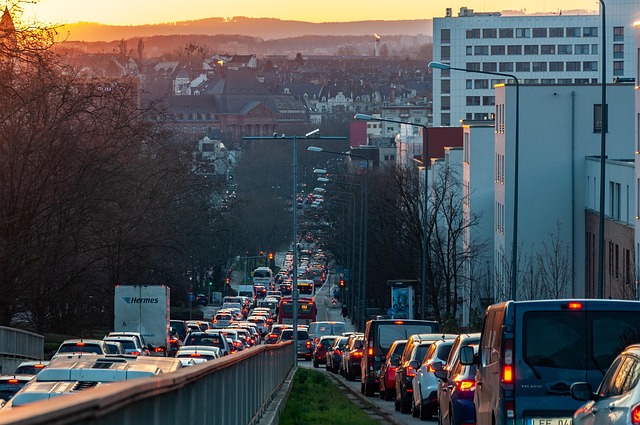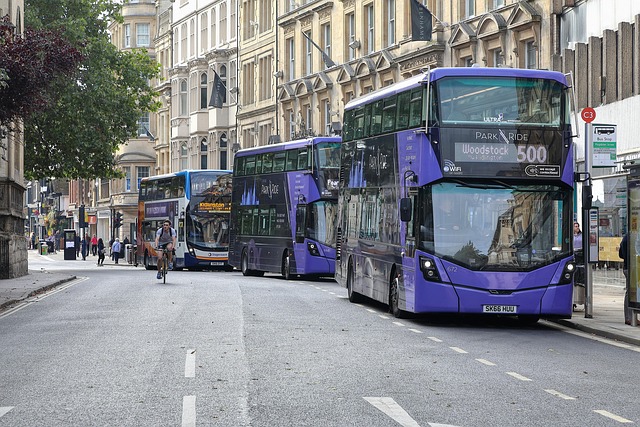
Here at WVS, we love our cars. Of course we do – they’re how we make a living.
But when 68% of the UK population travels to work by car – more like 80% in Wales – that means a lot of cars on the road. Inevitably, that means congested roads, and all the boredom and frustration that goes with that.
If only more commuters could leave the car at home, roads would be quieter, cities would be cleaner, and life would be sunshine and puppies and rainbows.
Actually, we’re not mocking. Go to a city like Amsterdam, and the benefits of reducing car commuting smack you in the chops.* Just 20% of traffic around the city is by car, and people spend an average of 26.5 hours per year stuck in congestion. For comparison, in Cardiff, it’s 87 hours a year.
So, fewer car-based commuters would bring some big advantages. The problem is that four out of ten workers say it just isn’t feasible.
No alternative to commuting by car
- Four-in-10 (40%) drivers say they have “no feasible alternatives to the car when it comes to commuting.”
- For those in rural locations, 70% feel they have no alternatives.
- For 31% of drivers, the bus is their only viable alternative for commuting.
- In rural areas, only 11% say the bus is a realistic alternative.
Can’t we just stick some more buses on the road?

Image by Jm TD from Pixabay
If 40% of drivers feel they can’t get to work without a car, the obvious solution is to bung a lot more buses on the road. Once there’s a viable alternative, Bob’s your dad’s brother: car volumes drop and everyone’s happy.
If only it were that simple.
For one thing, UK cities have a problem with sprawl. European cities are often relatively compact, with a lot of residents living close to the centre. This makes it easier to build a public transport network that’s viable for workers. Although we’re nowhere near the nightmare of bloaty US suburbs, it’s still relatively tough to build a network when many workers live miles away from the centre.
Then there’s the delayed gratification problem. Creating a car-free alternative takes time and huge amounts of money. There are also plenty of opportunities for it to go wrong: after all, the whole project rests on predicting whether people will change their behaviour.
Inevitably, anything that might appear anti-car runs into opposition. In a democracy, that can mean that plans can be scrapped before they really get going.
Do you just enjoy driving to work?
All of the above ignores one rather big elephant in the room – lots of people just like travelling by car.
According to the RAC survey:
Yet more than half (53%) of drivers said they would use their vehicle less if public transport was more convenient, reliable and affordable.
Think about that from the other point of view: even if public transport was more convenient, reliable and affordable, just under half would not use their vehicle less.
Why? Maybe one reason is that public transport is, well, public. There’s no way round the fact that sometimes that can absolutely suck. An overcrowded train/bus full of people coughing, yapping on the phone, playing music, eating smelly food and so on feels like Purgatory on wheels. By contrast, your car can be that little bubble of undisturbed personal space, where you can sing your head off to an nineties banger or reflect quietly on the mysteries of the cosmos. One of which is how we can make public transport more appealing.
What that leaves us with is… a right mess.
To sum up, then.
Masses of us can’t get to work without the car. That makes commuting slow for everyone. Adding to public transport is horribly expensive and takes time to work. This brings lots of opposition. Without public support, projects get delayed, watered down or cancelled. So, everyone stays in their cars, well away from our misbehaving and intrusive fellow humans.
It’s a conundrum all right, and we’re glad we don’t have to solve it. There are days when it’s not so bad just fixing cars!
*We’re not saying that Amsterdam is perfect, and especially not for people who have to use a car, but it gives the place a cleaner, quieter vibe.
The WVS blog covers a wide range of automotive topics, from the contentious to the light-hearted. WVS is an independent garage specialising in all the VW group marques, including Audi, Volkswagen, Skoda and SEAT. WVS provides services, repairs and MOTs, delivering a main dealer level of care at affordable prices. To book your vehicle in, or for any enquiries, get in touch.
